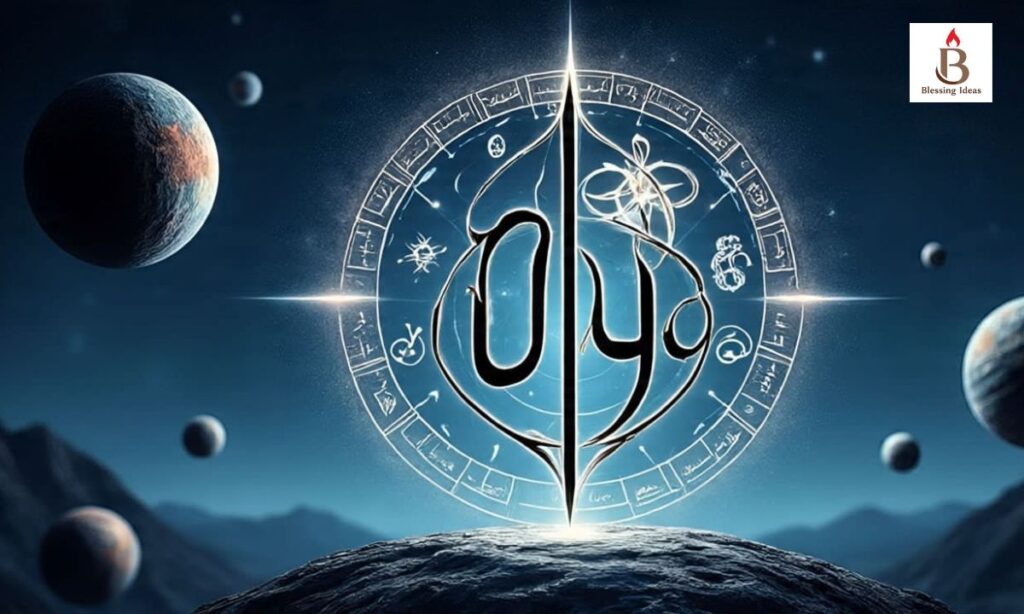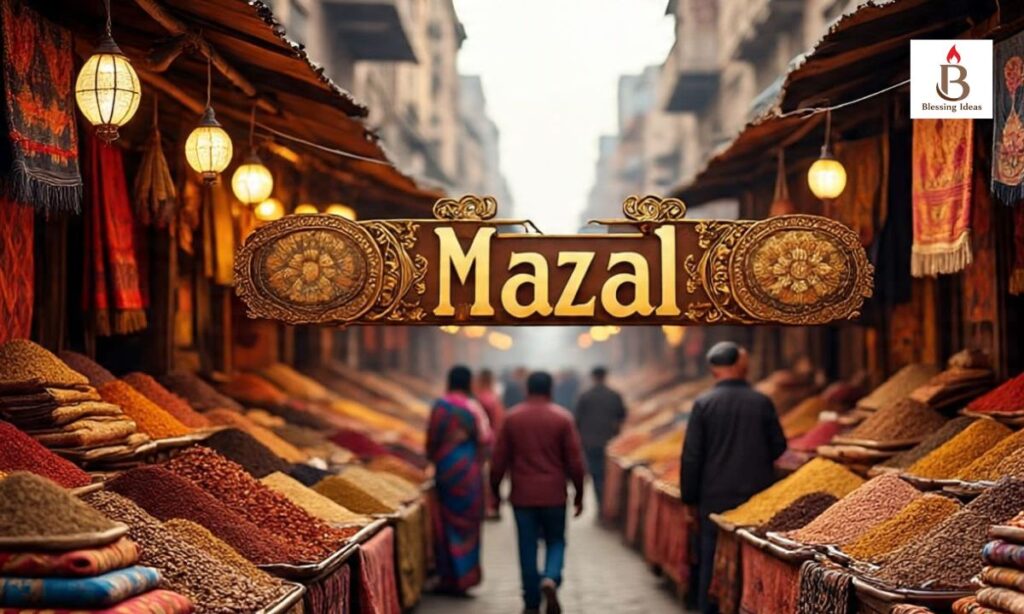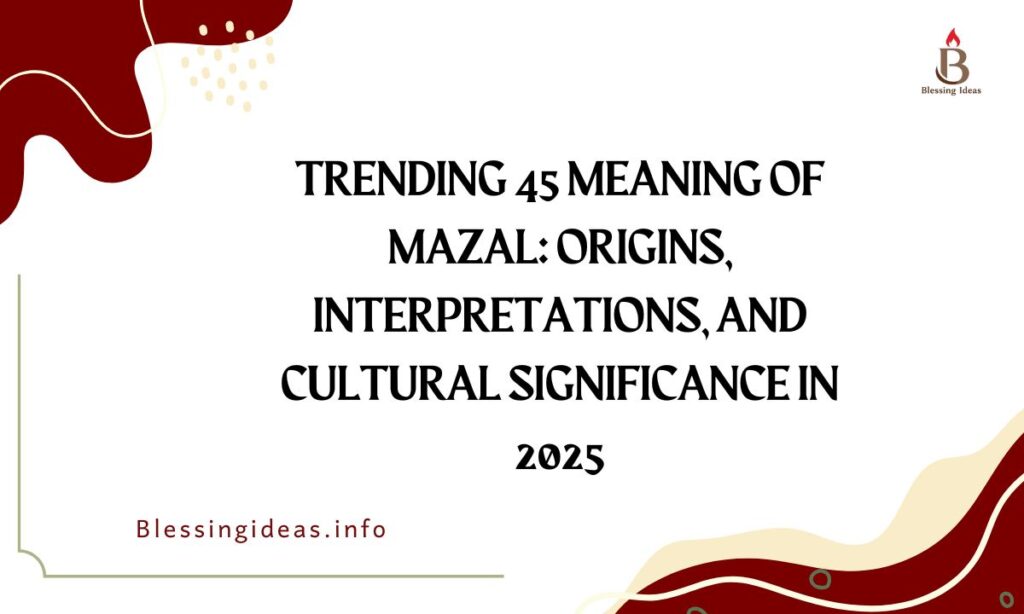The word Mazal (מַזָּל) is deeply embedded in Hebrew tradition and Jewish spirituality. Far beyond simple luck, it represents divine influence, celestial forces, and spiritual destiny.
This ancient concept appears throughout biblical texts, rabbinic literature, and modern Hebrew expressions. Its significance spans astronomy, mysticism, and daily life practices.
In this comprehensive guide, we explore:
- The ancient origins and linguistic evolution of Mazal
- Its central role in Jewish theology and mystical traditions
- Astrological connections and the Hebrew zodiac system
- Modern applications and cultural expressions
- Practical ways to understand and work with Mazal
- Cross-cultural influences and global perspectives
Etymology and Linguistic Origins of Mazal
The Hebrew term Mazal derives from the root נ-ז-ל (n-z-l), meaning “to flow” or “to drip.” This etymology suggests celestial influences flowing downward from heaven to earth.
Historical Linguistic Roots
Ancient Akkadian Connection: The word traces back to “manzaltu,” meaning “position of a star” or “celestial station.”
Aramaic Development: “Mazala” referred to planetary movements and stellar positions in ancient astronomical texts.
Hebrew Evolution: Originally meant “constellation” or “celestial sign,” later expanding to include concepts of fate and destiny.
The linguistic journey shows how astronomical terminology evolved into spiritual and philosophical concepts over millennia.
Mazal in Jewish Thought and Tradition
Jewish literature extensively discusses Mazal across different periods and theological perspectives.
Biblical and Talmudic References
The Bible contains direct references to Mazalot (plural of Mazal):
2 Kings 23:5: “He put down the idolatrous priests… who burned incense to Baal, to the sun, moon, and constellations (Mazalot), and to all the host of heaven.”
This verse establishes the ancient Hebrew understanding of constellations as spiritual forces.
Talmudic Wisdom: The Babylonian Talmud explores Mazal extensively:
- Shabbat 156a: “One born under Mars will be prone to bloodshed, whether as a surgeon, executioner, or ritual slaughterer.”
- Bava Metzia 42a: “Everything depends on Mazal, even the Torah scroll in the synagogue ark.”
These teachings suggest both deterministic and providential aspects of celestial influence.
Rabbinic Perspectives on Mazal
The Exemption Principle: Shabbat 156a states: “Ein Mazal L’Yisrael” – “Israel is not governed by Mazal.”
This fundamental teaching suggests Jewish people can transcend astrological influences through divine connection and righteous living.
Maimonides’ Position: The great philosopher rejected astrology while acknowledging divine providence works through natural laws.
Kabbalistic Understanding: Mystical texts describe Mazal as channels of divine energy rather than blind fate.
The Role of Mazal in Astrology and Mysticism

Jewish mysticism developed sophisticated systems connecting Mazal to spiritual practice.
The 12 Mazalot (Zodiac Signs) in Jewish Tradition
The Hebrew calendar aligns each month with specific constellations:
| Hebrew Month | Mazal | English Equivalent | Spiritual Quality |
| Nisan | טלה (Taleh) | Aries | Leadership, Renewal |
| Iyar | שור (Shor) | Taurus | Strength, Persistence |
| Sivan | תאומים (Teomim) | Gemini | Communication, Torah |
| Tammuz | סרטן (Sartan) | Cancer | Protection, Emotion |
| Av | אריה (Arieh) | Leo | Courage, Destruction |
| Elul | בתולה (Betulah) | Virgo | Purity, Repentance |
| Tishrei | מאזניים (Moznaim) | Libra | Justice, Balance |
| Cheshvan | עקרב (Akrav) | Scorpio | Transformation |
| Kislev | קשת (Keshet) | Sagittarius | Miracles, Light |
| Tevet | גדי (G’di) | Capricorn | Discipline, Winter |
| Shevat | דלי (D’li) | Aquarius | Innovation, Growth |
| Adar | דגים (Dagim) | Pisces | Joy, Hidden Miracles |
Each Mazal influences the spiritual energy available during its corresponding month.
Mazal in Modern Hebrew and Everyday Life
Contemporary Hebrew integrates Mazal into daily expressions and cultural practices.
Common Expressions Using Mazal
Mazal Tov (מזל טוב): Literally “good Mazal,” used for congratulations and celebrations.
Mazal Gadol (מזל גדול): “Great fortune” – expressing exceptional luck or blessing.
Mazal Ra (מזל רע): “Bad Mazal” – indicating unfortunate circumstances or timing.
Mazal Kasheh (מזל קשה): “Difficult Mazal” – describing persistent challenges.
Mazal Sheli (מזל שלי): “My Mazal” – referring to personal destiny or luck.
These phrases demonstrate how ancient concepts remain alive in modern conversation.
Philosophical and Theological Perspectives on Mazal
Jewish thought presents nuanced views on destiny versus free will.
Free Will vs. Destiny
The Rambam’s View: Maimonides emphasized human choice over astrological determinism, viewing Mazal as natural influence rather than absolute fate.
Chassidic Teaching: Later mystical traditions teach that prayer, charity, and repentance can transform negative Mazal into positive outcomes.
Zohar Perspective: The primary kabbalistic text describes Mazal as divine channels that can be influenced through spiritual elevation.
Modern Orthodox Position: Contemporary rabbis generally view Mazal as divine providence working through natural means, emphasizing human responsibility.
How Mazal Influences Jewish Rituals and Customs
Religious practice incorporates Mazal awareness in various ways.
Mazal in Life Events
Birth Timing: Kabbalistic tradition considers birth time significant for understanding life purpose and challenges.
Wedding Dates: Couples often consult Hebrew calendars to choose auspicious times, avoiding periods of mourning or difficult Mazal.
Bar/Bat Mitzvah: The thirteenth birthday marks entry into spiritual responsibility, believed connected to Mazal cycles.
Naming Customs: Some families consider astrological factors when choosing Hebrew names for children.
Business Ventures: Traditional Jews may time important decisions according to favorable Mazal periods.
Common Misconceptions About Mazal
Several misunderstandings persist about this concept:
| Misconception | Reality |
| “Mazal means random luck” | Mazal represents divine influence and spiritual alignment |
| “Jews reject all astrology” | Jewish tradition includes astronomical wisdom while emphasizing free will |
| “Mazal cannot be changed” | Prayer, charity, and good deeds can transform Mazal |
| “Mazal is superstition” | Mazal reflects sophisticated theological and philosophical concepts |
| “Only religious Jews believe in Mazal” | The concept influences secular Hebrew culture and language |
The Influence of Mazal in Other Cultures

Similar concepts appear across Middle Eastern and Mediterranean traditions.
Arabic Tradition: “Maqadir” (destiny) parallels Jewish Mazal concepts, emphasizing divine decree balanced with human effort.
Persian Heritage: “Bakhte” means fortune or fate, sharing etymology with Hebrew Mazal through ancient Mesopotamian languages.
Western Astrology: European zodiac systems show historical connections to Jewish Mazal traditions through Hellenistic influences.
Islamic Thought: “Qadar” (divine predestination) creates theological parallels while maintaining distinct interpretations.
Practical Applications: What Mazal Means for You
Understanding Mazal offers practical guidance for modern life.
Can Mazal Be Changed?
Jewish teaching emphatically answers yes. The Talmud and later authorities provide specific methods:
Prayer (Tefillah): Sincere supplication can alter divine decrees and improve personal Mazal.
Charity (Tzedakah): Proverbs 10:2 states: “Charity saves from death” – suggesting material generosity transforms spiritual circumstances.
Repentance (Teshuvah): Ezekiel 18:21-22 promises: “If the wicked turns from all his sins… all his transgressions shall be forgotten.”
Torah Study: Learning sacred texts creates spiritual merit that influences personal destiny.
Daily Practices Involving Mazal
Morning Blessings: Special prayers for success and divine favor throughout the day.
Mezuzah Placement: Doorpost scrolls invoke protective Mazal for households.
Sabbath Observance: Weekly spiritual elevation that positively influences the coming week’s Mazal.
Holiday Celebrations: Each festival connects to specific Mazal energies and opportunities for spiritual growth.
Ethical Living: Daily kindness and justice create positive Mazal for individuals and communities.
Conclusion
Mazal represents one of Judaism’s most sophisticated concepts, bridging astronomy, theology, and practical wisdom. Far from simple luck or blind fate, it describes the dynamic relationship between divine influence, natural forces, and human choice.
The ancient teaching that “Israel is not governed by Mazal” doesn’t reject celestial influence but affirms human potential to transcend limitations through spiritual elevation. This empowering message remains relevant for contemporary seekers of meaning and purpose.






